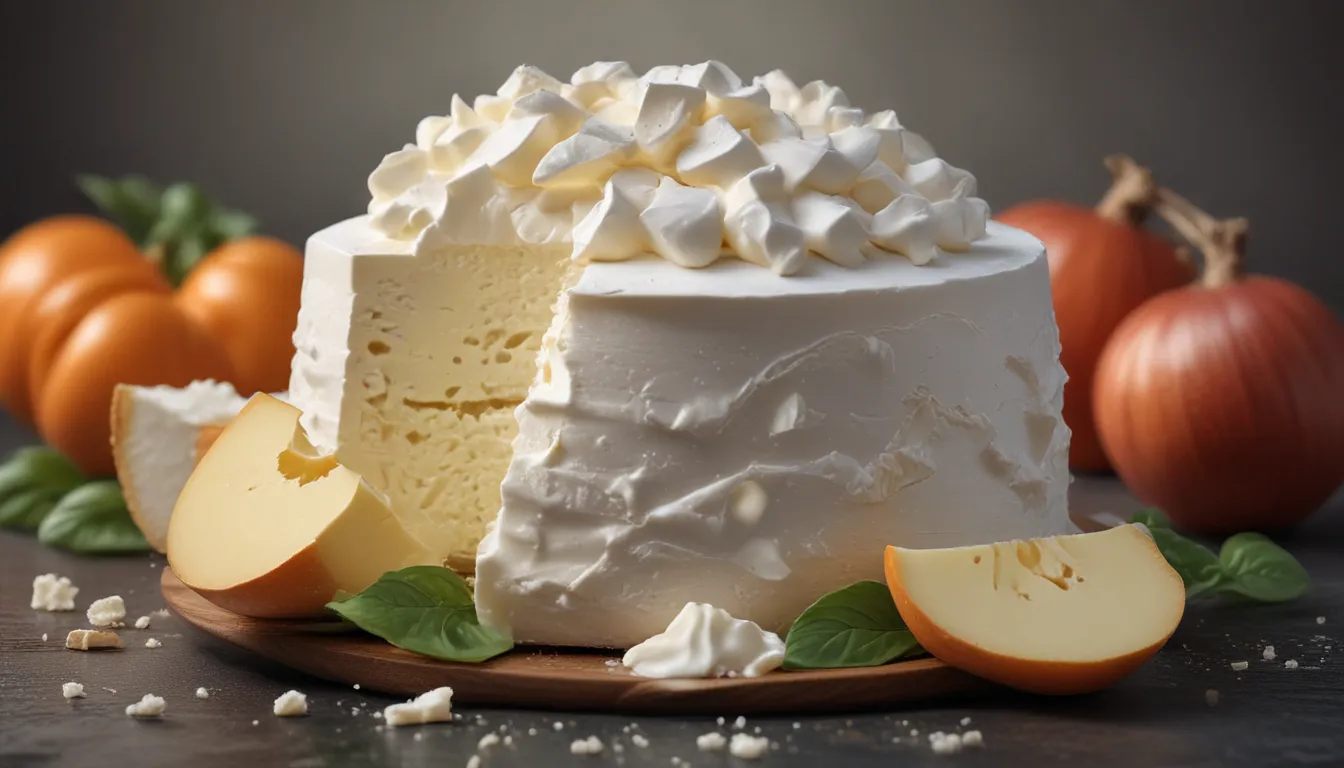The pictures in our articles might not always show exactly what the text is talking about. We use these images to make the article more interesting and eye-catching. They are there to add to the text, but not to replace it or show every detail.
Welcome to the delightful world of ricotta cheese! This creamy Italian cheese has been captivating taste buds around the globe with its versatile nature and rich flavor. In this article, we will delve into 12 intriguing facts about ricotta, from its ancient origins to its culinary applications and health benefits. So, grab a cup of tea and join us on a journey through the fascinating world of ricotta cheese.
Exploring the Origins of Ricotta
Ricotta, a beloved Italian cheese, traces its roots back to ancient times. The name "ricotta" translates to "re-cooked" in Italian, alluding to the traditional method of crafting this delectable cheese.
Crafted from Whey Goodness
Derived from the whey leftover during the production of cheeses like mozzarella or provolone, ricotta undergoes a re-heating process to coagulate the proteins, resulting in its distinct texture and flavor.
Embracing its Soft and Creamy Texture
One of the defining characteristics of ricotta is its soft and creamy texture, perfect for spreading on toast, crackers, or incorporating into a myriad of recipes, both sweet and savory.
Delighting Palates with a Mild and Delicate Flavor
Ricotta's flavor profile is mild yet subtly sweet, with hints of milk and cream that harmonize beautifully with a variety of ingredients, making it a versatile addition to any dish.
Unveiling the Nutritional Perks of Ricotta
Beyond its delicious taste, ricotta offers a nutritional boost, rich in protein, calcium, and essential vitamins. Its low-fat content and abundance of amino acids make it a wholesome choice for a well-rounded diet.
Unlocking Culinary Creativity with Ricotta
Ricotta's versatility knows no bounds in the kitchen, making appearances in pasta fillings, pizza toppings, desserts, and standalone delicacies, showcasing its adaptability and flavor-enhancing capabilities.
Celebrating Ricotta’s Presence in Italian Cuisine
A staple in Italian gastronomy, ricotta stars in classics like lasagna, cannoli, and cheesecake, infusing dishes with its creamy texture and delicate flavor, elevating traditional recipes to new heights.
Discovering the World of Ricotta Varieties
Exploring the diverse array of ricotta options reveals whole milk ricotta, part-skim ricotta, and sheep's milk ricotta, each boasting its own unique taste and texture for culinary exploration.
Savoring Ricotta Salata’s Distinctive Charm
Ricotta salata, meaning "salted ricotta" in Italian, undergoes a pressing, salting, and aging process, resulting in a crumbly texture and tangy flavor profile that sets it apart from traditional ricotta.
Indulging in Sweet and Savory Creations
The versatility of ricotta shines through in both sweet and savory applications, whether blended with herbs for a flavorful dip, combined with fruits for dessert fillings, or simply enjoyed in its pure, creamy form.
Longevity in the Fridge
Ricotta's longevity sets it apart from other fresh cheeses, boasting a longer shelf life when stored properly in the refrigerator, allowing for gradual enjoyment over several weeks.
Embracing Ricotta’s Role in Mediterranean Cuisine
Beyond Italian borders, ricotta finds itself at home in Mediterranean fare, playing a pivotal role in dishes such as Greek spanakopita, Turkish börek, and Middle Eastern pastries, showcasing its global culinary appeal.
Embracing the Versatility and Delight of Ricotta Cheese
In conclusion, ricotta cheese stands as a culinary gem, offering a blend of delicious flavor, versatile application, and nutritional benefits. Whether enjoyed in pastries, pasta dishes, or as a standalone delight, ricotta adds a touch of richness and sophistication to any culinary creation. With its high protein content, low fat levels, and calcium-rich composition, ricotta emerges as a wholesome addition to any diet. So, next time you peruse the dairy aisle, don't forget to pick up a container of ricotta cheese and embark on a culinary adventure filled with flavor and nourishment.
Frequently Asked Questions about Ricotta Cheese
- What Ingredients Make Up Ricotta Cheese?
-
Ricotta cheese is crafted from whey, the residual liquid remaining after the production of other cheeses like mozzarella or provolone.
-
Is Ricotta Cheese a Healthy Option?
-
Yes, ricotta cheese is considered nutritious, boasting low fat and calorie levels compared to other cheeses, while providing ample protein and calcium.
-
Can Other Cheeses Substitute Ricotta?
-
Although ricotta offers a unique flavor and texture, cottage cheese or Greek yogurt can serve as substitutes in certain recipes, with slight variations in the end result.
-
Is it Possible to Freeze Ricotta Cheese?
-
Indeed, ricotta cheese can be frozen, though its texture may become grainier upon thawing. Consider using frozen ricotta in cooked dishes for optimal enjoyment.
-
How Long Does Ricotta Cheese Last in the Fridge?
-
Typically, ricotta cheese can last about one to two weeks when stored correctly in the refrigerator. Keep an eye out for signs of spoilage before using.
-
Is Ricotta Cheese Suitable for Lactose-Intolerant Individuals?
- Ricotta cheese contains minimal lactose, making it more palatable for some lactose-intolerant individuals. Consult a healthcare professional for personalized advice.






